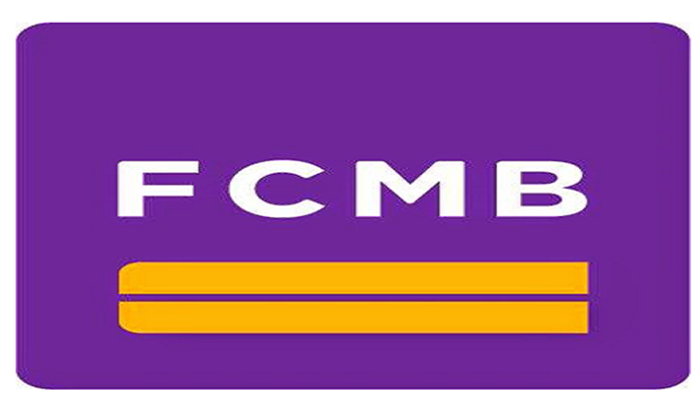October 17, 2019/NSE
Introduction
On 16 October 2017, The Nigerian Stock Exchange (“The Exchange”) received the Securities and Exchange Commission’s (“SEC” or “the Commission”) approval to publish the Rules on Order Handling and Best Execution (the “Rules”). The Exchange via a Notice dated 29 June 2018, notified the market of the SEC’s approval of the Rules, which became effective on 6 July 2018.
The objective of the Rules is to ensure that Dealing Member Firms (Dealing Member) seek to ensure best execution at all times when purchasing or selling securities on behalf of their clients. To achieve this purpose, the Rules require Dealing Members to take reasonable steps to obtain the best available result for their clients within the shortest time frame. In so doing, Dealing Members must not deviate from the terms and conditions of the mandate from their clients.
- Definition Of Terms
The following terms are defined to provide clarity and further explain the context in which these words are used in this interpretative guidance:
- Client Mandate
This is an authorization from a client to a Dealing Member Firm to trade securities in its registered trading account. The client is the beneficial owner of the securities traded.
- Dealing Member Firm (“Dealing Member”)
Any company registered as a Broker Dealer or Broker by the SEC which islicensed by The Exchange to transact business through its trading facilities and operate within the parameters and restrictions provided for by the SEC and The Exchange’s Rules. Dealers are also Dealing Member Firms. However, because Dealers are prohibited from trading other than for their own proprietary purposes, it is not expected that the Rules or this interpretative guidance will apply to them.
- Best Execution
This is the legal mandate that places an obligation on a Dealing Member acting on behalf of a client to execute the client’s mandate in a way that is most advantageous to the client.
- Agent
Any person, corporate or natural, acting as an intermediary between a principal and its client to facilitate the purchase or sale of securities and/or investment products, subject to compliance with the provisions of Rule 17.5: General Conduct, Sharing of Brokerage Income; and Association with Non-Dealing Members; Rulebook of The Exchange, 2015 (Dealing Members’ Rules). 2
- Objective
The Rules outline the obligations of Dealing Members to their clients through the life cycle of a client’s mandate, right from the receipt of mandates to execution. The Rules also aim to enhance investors’ protection and confidence in the Nigerian capital market.
The Exchange requires that in any transaction for or with a client or a client of another Dealing Member, staff of the Dealing Member, and persons associated with such Dealing Member’s operations, shall use reasonable diligence to ascertain the best market price for the specified security, and buy or sell such security so that the resultant price is as favourable to the client as possible, under prevailing market conditions.
- Interpretation
3.1 Best Execution
- Every Dealing Member shall at all times when acting on behalf of clients on the purchase or sale of securities, adhere to the Order Execution policy by taking reasonable steps to obtain the best available results for the client within the shortest time frame in accordance with the terms and conditions of the mandate from the client.
- Where a Dealing Member deals on its proprietary account and the counter party to the transaction is the same Dealing Member’s client, to ensure compliance with the best execution principle, the transaction shall be treated as an execution of the client’s mandate, and not the Dealing Member’s.
III. Every Dealing Member is obligated to deliver the best possible result when executing client mandates on all types of securities.
- Every Dealing Member shall apply its Order Execution policy in a manner that takes into account the different circumstances associated with the execution of mandates related to particular types of securities.
- Every Dealing Member shall determine the relative importance of the execution factors1 or establish the process by which it determines the relative importance of the factors. The relative importance that a Dealing Member attaches to those execution factors shall be designed to obtain the best possible result for the execution of its clients’ mandate.
- Every Dealing Member should note that price plays a very important role where the Dealing Member executes a mandate on behalf of a retail client; and note as well the criteria for determining the relative importance of the execution factors.
VII. Every Dealing Member should note that the Order Execution policy also applies when executing mandates for discretionary investor accounts.
VIII. Every Dealing Member shall establish and implement its Order Execution policy to each client’s mandate, and display its Order Execution policy on its website at all times.
- Every Dealing Member shall promptly inform its clients of any material difficulty relevant to the proper execution of mandates upon becoming aware of the difficulty.
- Every Dealing Member shall monitor 2 the effectiveness of its order execution arrangements and policy on a regular basis in order to identify and, where appropriate, correct any deficiencies.
- Every Dealing Member shall be required to promptly notify its clients of any change to its order execution arrangements or execution policy and review the policy annually.
3.2 Client Order Handling
- Every Dealing Member shall implement process and procedures which provide for the prompt, fair and expeditious execution of clients’ mandates.
- Every Dealing Member shall whilst carrying out clients’ mandates, ensure that mandates executed on behalf of clients are promptly and accurately recorded and allocated.
III. No Dealing Member shall execute a client’s mandate in aggregation with another client’s mandate except under conditions specified in the Rules on Order Handling and Best Execution; Rulebook of The Exchange, 2015 (Dealing Members’ Rules).
- Under no condition will a Dealing Member aggregate a client’s mandate with a transaction for the Dealing Member’s proprietary account.
- Every Dealing Member is required to develop and implement auditable system processes and procedures that will ensure that a mandate can be tracked and monitored through its life cycle.
- Enforcement
The Exchange may enforce all or any of the disciplinary actions listed in the Rules against any Dealing Member that violates the Rules.
The following applicable sanctions should be noted:
- i) Any Dealing Member that fails to maintain an auditable trail for order execution, shall be liable to pay a fine of not less than N300,000.00 (Three Hundred Thousand Naira).
- ii)Any Dealing Member that contravenes any of the Rules, except for the Rule that requires Dealing Members to maintain an audit trail, shall be liable to pay a minimum fine of N250,000.00 (Two Hundred and Fifty Thousand Naira) in addition to any other penalties as may be prescribed from time to time by The Exchange. 2 Guidance on how to monitor effectiveness is provided for in the template execution policy provided by The Nigerian Stock Exchange, and is to serve only as a guide to building a consistent approach by all Dealing Members. The template should be amended as required following a firm’s review as determined by its internal approval process.
- Expectation For Stakeholders
- Dealing Member Firms (DMFs)
From the effective date of the Rules, all Dealing Member Firms are required to comply with the foregoing by:
- Establishing and implementing Order Execution policies in their firms;
- Displaying their Order Execution policies on their websites at all times;
iii. Notifying their clients of the regulatory provisions of an Order Execution policy, any changes therein and its effect to their transactions;
- Stablishing systems for order tracking and monitoring in their operations.
- Clients
All Clients and Investors are advised to request for the Order Execution policy of their Broker Dealers and Brokers prior to transacting business with the firms.
- The Nigerian Stock Exchange
The Exchange commenced the implementation of the provisions of the Rules on Order Handling and Best Execution from the Rules’ effective date of 6 July 2018, stated above.
Notes
- The above information does not constitute professional investment or legal advice to anyone. Professional advice should be sought by stakeholders or potential investors where required.
- Should you require further clarification, kindly contact the Broker Dealer Regulation department of The Exchange at Nsebdr@nse.com.ng
- The Rules of The Exchange are also available on its website (www.nse.com.ng), for additional reference














